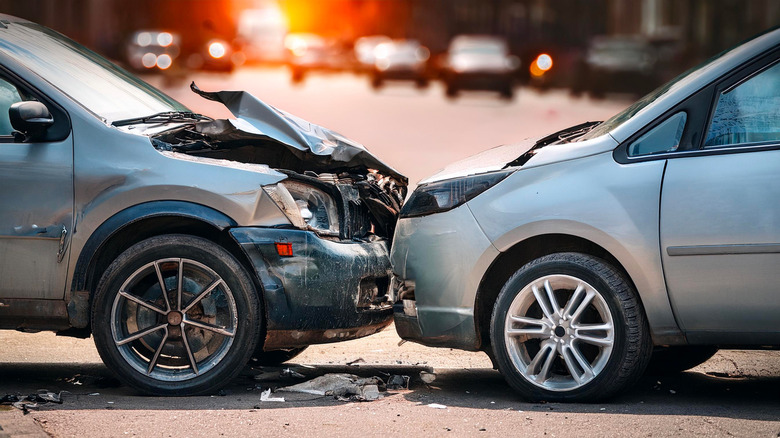Should You Lower Your Insurance Coverage If Your Car Is 10 Years Old Or More? Here's What The Experts Say
Automotive insurance is a veritable maze of qualifiers and quantifiers that you're pretty much forced to navigate for the entire duration of your car ownership. Naturally, that ownership can last well over a decade, and if you're a safe driver or don't drive very frequently, you may not ever actually make use of your insurance benefits. Automotive insurance from the major brands definitely isn't cheap, and if you're not getting consistent use out of it, you may consider investing less in it to reduce its footprint in your life.
While that notion makes sense on paper, though, whether or not the math actually adds up depends heavily on a multitude of important factors, including how long you've owned the car, the condition it's in, if you've ever been in any accidents, how often you drive it, and much more. If you've got a car in reasonably good condition that you've taken good care of for at least ten years, and don't plan on maintaining ownership of it for much longer, you may be able to reap some benefits from dialing back your insurance coverage. If your car is still relatively young or you're still driving fairly often, however, lowering your coverage may simply expose you to more risk in exchange for insufficient rewards in the form of minor savings. Experts generally agree that there's no single right answer to this conundrum, and you'll need to heavily consider your situation before making a choice.
Minimum insurance may work for an old car that you don't drive much
According to Benjamin Preston of Consumer Reports, there are a few avenues you can take to reduce your automotive insurance's overall price if you've been paying too much for too long. These measures include increasing your insurance deductible, axing specific benefits like collision coverage, reporting low annual mileage, and opting to pay out of pocket for small damages. Of course, removing the extra coverage and paying out of pocket all means that you're going to be the one spending more money overall in the event of any accidents or crashes. Even if you've never been in a crash in your life, the possibility is never zero, especially if your car is old and has some quirks. It's less of a risk if you only drive occasionally, but still a risk nonetheless. Preston also notes that, no matter what, you shouldn't touch the liability insurance in your plan. Its required by law and it's what pays for medical treatment if you're injured in a crash.
Rachel Green of Kiplinger recommends taking stock of how much you spend on insurance annually, then comparing those numbers to how much you would spend with reduced coverage. If the math is in your favor, then the money you save could, in theory, be used to pay off any damages the car incurs in an at-fault accident, provided they aren't too severe. However, Green stresses that you should never lower insurance on a car that you have some manner of vested interest in, no matter how old it is. This includes leased cars, cars that still have an active loan you're paying off, or luxury and classic cars that would cost you an arm and a leg to get repaired without insurance.

